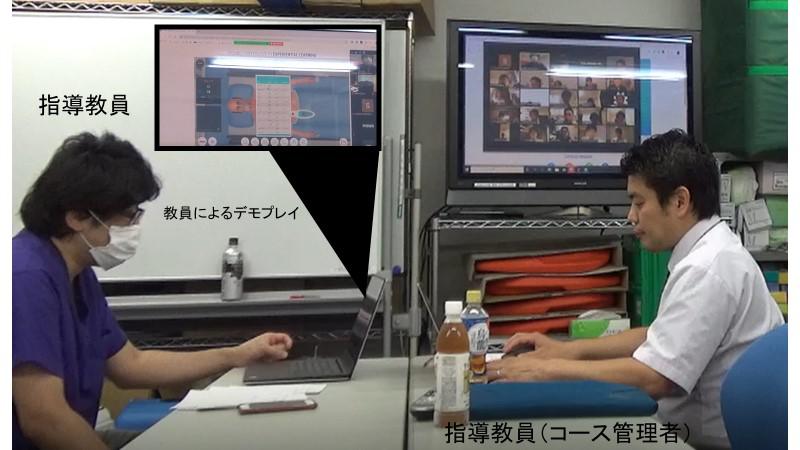| Organization | Showa University School of Medicine Department of Medical Education and Uchida Yoko Co., Ltd. |
|---|---|
| Title | Online clinical medical education curriculum using Body Interact® that can replace the practical clinical training in hospital |
| City, Country | Shinagawa-ku, Tokyo, Japan and Chuo-ku, Tokyo, Japan |
<< Background >> Due to the effects of COVID-19, which started to spread in December 2019, the urban functions were limited and the ban on opening and entering educational institutions was introduced. The majority of medical education institutions throughout Japan stopped offering conventional classes and practical training for a certain period and have been forced to prepare the online education system. One of the urgent challenges is to find an alternative to the Bed Side Learning (BSL) in hospital, indispensable in educating doctors, who are medical skill practitioners. The fifth and sixth students of the department of medicine, especially, were to take the Objective Structured Clinical Examination (OSCE) and national exam, so the education loss must be avoided.
<< Implementation plan >> In the department of medicine of Showa University, three facilities of Division of Respiratory Medicine and Allergology, Medical Education, and Education Promotion Office immediately introduced, in cooperation, Body Interact® (Take The Wind, Portugal), a virtual reality type clinical medical simulation software, as an alternative to BSL to establish a totally new clinical medicine education approach “ICT mediated medical education (i-me)” using information device distributed to each student.
・Body Interact®: Benefits of the software are 1) totally digital, 2) customizable, 3) gamification, and 4) anytime anywhere & any situation. In order to keep hands of students unable to enter the campus or hospital busy learning, the software enables them to enjoy learning repeatedly how to diagnose virtual patients along with a scenario like playing a game (when the play button is pushed, the content is continuously played automatically) at home or when moving with laptop PC or tablet PC. We localized the original version for the use in the medical condition in Japan and into Japanese language to promote smooth introduction by other institutions.
・i-me: Teachers managed and evaluated each student’s performance of the scenario play using the Learning Management System (LMS) BI Studio® exclusive for Body Interact®. Hand-outs for preparation study, small quizzes, and the operation manual of Body Interact®, among others, were distributed via Google Classroom®. With this project, the system with which information communication among students and with teachers and maintenance (agency) became possible and students can learn clinical medicine at anytime and anywhere by the combination mentioned in the above and the use of e-mails was successfully constructed.
<< Actual curriculum >> Target: The fifth and sixth students of the department of medicine (approx. 240 persons). Students were asked to self-study solutions and skills to solve problems identified with virtual patients with no infection risk (3 weeks) by repeatedly playing three respiratory disorder scenarios (mandatory) and one COVID-19 scenario as a topic task in a five-week course. In the subsequent term, two scenarios among the above were presented to the students, and the students were asked to play each scenario only once in a certain period and record the results (2 weeks) for the assessment of achievement. A review was offered to students by lively broadcasting demonstration plays of the four scenarios teachers presented using an online conference system, Zoom® (Image (3)) and holding Q&A session, in which explanation including things to care for in the real site and teachers’ clinical experience were also communicated.
 << Operation process >>Students and medical instructors in and out of the University were highly satisfied with the system.
<< Operation process >>Students and medical instructors in and out of the University were highly satisfied with the system.
| URL | https://www.showa-u.ac.jp/en/ | szshintr@med.showa-u.ac.jp |
|---|







